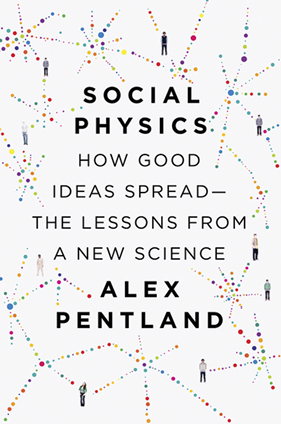Incarceration
Every issue explores cutting-edge developments in technology, medicine, education, climate change, and much more. Articles provide in-depth analyses of science and technology’s impact on public policy, the economy, and society—bringing today’s best minds to bear on tomorrow’s most critical topics.
Editor's Journal
Jailhouse Rot
Americans seem to have a thing for prisons. Not only do we have the world’s largest prison population, we have a rich and incongruous pop culture heritage of films and songs about… Read More
From the Hill
From the Hill – Fall 2015
White House budget guidance In early July, the White House Office of Science and Technology Policy (OSTP) and the Office of Management and Budget (OMB) issued their annual joint memo identifying science… Read More
Perspectives
Technologies for Conserving Biodiversity in the Anthropocene
Conservation biologists have endeavored to preserve biodiversity from the most extreme excesses of human environmental destruction. Most of these efforts to reverse, halt, and even slow biodiversity decline have proven ineffective, with… Read MoreAdvice to My Smart Phone
Until recently our friends were the ones who knew us best, and perhaps even knew what was best for us. But nowadays that role is being claimed by our smartphones: our new… Read More
Features
CRISPR Democracy: Gene Editing and the Need for Inclusive Deliberation
The precise and powerful CRISPR gene-editing technology raises basic questions about the rightful place of science in democratic governance.Reducing Incarceration Rates: When Science Meets Political Realities
As the United States considers ways to improve how it incarcerates people in prisons and jails—and particularly how to reduce the number of people incarcerated—it is first necessary to recognize that there… Read MoreThe Effects of Mass Incarceration on Communities of Color
Understandably, most of us would expect that removing criminals—those who would victimize others—from a community would be welcomed by the populace, and that both residents and their property would be better off… Read MoreUnwinding Mass Incarceration
Consensus is now emerging that the United States should move away from its heavy reliance on mass incarceration, which has ramped up over the past 40 years, ending in more people being… Read MoreCorrectional Health Is Community Health
The recent and dramatic expansion of the criminal justice system in the United States has been described by legal scholars as hyperincarceration, or “mass incarceration.” Much of the increase in the size… Read MoreCommunicating the Value and Values of Science
Read MoreScience communication needs to find optimal ways to communicate what it knows, how it knows it, the limitations of the involved methods, and also the uncertainties surrounding its findings.
Bipartisan Science
It’s not enough for scientists to clearly communicate their findings to policy makers; they need to be politically smart, too. This means highlighting evidence and options that can appeal to opposing ideologies.… Read MoreMapo Tofu with Spicy Cucumber Side
“Brain is like…black orb number eight,” Przemyslaw says. Orange light streams into the diner. Usually, the reporters just ask a few questions, shoot video, and scatter. Not this time. Przemyslaw fingers the… Read More
Book Reviews

Economics Humanized
In the 1999 film The Matrix, there is a wonderful scene between Morpheus, the leader of a rebel group, and Neo, who is destined to be the movie’s hero. Neo is… Read More
A New Social Science
Envious of several hundred years’ worth of advances in human understanding of the physical universe, some French thinkers, led by Auguste Comte, started clamoring in the early 1800s for pursuit of similarly… Read More
